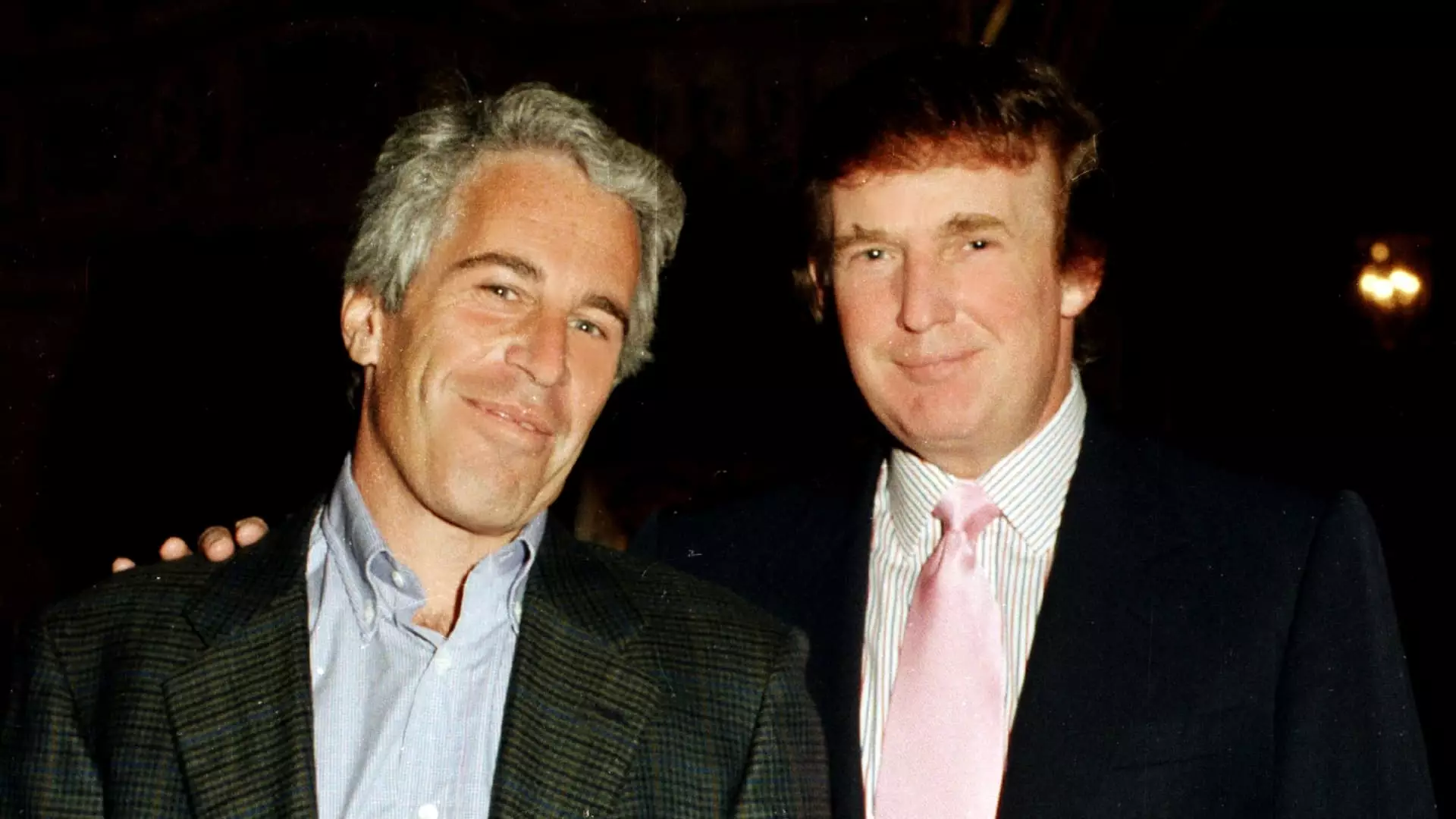The recent legal battles surrounding Jeffrey Epstein’s case serve as more than just courtroom dramas—they expose fundamental issues about transparency, accountability, and the role of government in holding the powerful accountable. When the Trump administration and its judicial allies push to withhold grand jury materials, they not only obstruct potential truths about Epstein’s network but also threaten the foundational democratic principle that truth must be accessible to the public. This refusal to unseal vital documents symbolizes a troubling tendency among those in power to favor secrecy for personal or political reasons, rather than prioritize justice for victims.
Unsealing these records could illuminate the extent of Epstein’s illicit activities and possibly implicate influential figures who have thus far evaded scrutiny. By resisting transparency, authorities effectively shield the powerful from the repercussions of their actions. Such resistance raises questions about whether justice is truly served by concealing information or simply preserved through silence. The judiciary’s role here—a central pillar in safeguarding public interest—should be to ensure that such records, especially those linked to heinous crimes like sex trafficking, are made available to bring accountability and foster public trust.
The government’s accumulation of thousands of documents and evidence paints a picture of systemic complicity. The existence of a vast trove of files, which dwarfs the limited grand jury records, underscores the depth of information available. Yet, rather than confronting this reality, the Trump administration and certain judicial actors have preferred to dismiss the release as a distraction, as if the truth is secondary to political convenience. Such dismissiveness diminishes the importance of transparency and enables a culture of concealment that benefits the few at the expense of the many.
Political Interference and the Integrity of Public Discourse
The politicization of the Epstein case is evident not just in the ongoing legal skirmishes but also in the associated claims about whether the documents could implicate prominent figures, including Donald Trump himself. Reports indicating Trump’s prior associations with Epstein, and allegations that FBI personnel were instructed to flag Epstein-related records mentioning the president, highlight a disturbing attempt to control narratives rather than let the facts speak for themselves.
This manipulation of information compromises democratic integrity. When authorities selectively release or withhold information based on political considerations, they erode public trust. Citizens deserve transparency because it empowers informed debate and enables oversight of power structures. Opaque secrecy, on the other hand, fosters suspicion, cynicism, and further erosion of faith in institutions. In this context, the push to keep secrets about Epstein’s network feels less like a legal strategy and more like an effort to preserve the status quo for influential allies.
Furthermore, the repeated judicial rejections of the government’s attempts to keep records sealed demonstrate that, at least within the judicial system, there remains a commitment to scrutinize undue secrecy. Judges have recognized the importance of transparency, emphasizing that the government has already invested significant resources into investigating Epstein, making additional hiding of grand jury materials unnecessary. These rulings highlight an important truth: justice benefits from openness, not concealment, regardless of political pressures.
The Broader Implications for Democratic Accountability
Holding back information about such a high-profile case reflects a dangerous tendency for authorities to prioritize protecting reputations over pursuing the truth. When elites involved in serious crimes are shielded from scrutiny, it not only perpetuates impunity but also fuels public disillusionment with the justice system. In a healthy democracy, accountability must be non-negotiable, especially in cases involving abuse and exploitation.
The resistance to unsealing Epstein-related documents exposes underlying issues regarding media freedom and the essential role of journalists in uncovering truths hidden by those in power. While some argue that national security or privacy concerns justify withholding some records, these justifications are often overused or misapplied. The primary concern should always be whether transparency serves the public interest and whether the information can shed light on systemic issues of abuse and corruption.
Ultimately, the fight over delving into Epstein’s secret files is emblematic of a larger debate: should society prioritize openness and truth, or prioritize political convenience and personal protection? The answer, in a progressive and democratic context, should be clear. Transparency is a moral imperative that not only exposes wrongdoing but also fortifies the moral fabric of society, ensuring that no individual or institution is above the rule of law. Efforts to suppress this information threaten to turn justice into a privilege of the powerful rather than a fundamental right of all citizens.


Leave a Reply